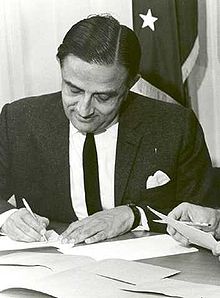
Back فيكرام سرابهاي Arabic فيكرام سرابهاى ARZ বিক্ৰম সাৰাভাই Assamese ویکرام سربهی AZB विक्रम साराभाई Bihari বিক্রম সারাভাই Bengali/Bangla Vikram Sarabhai German Vikram Sarabhai Spanish ویکرام سارابهای Persian Vikram Sarabhai Finnish
Vikram Ambalal Sarabhai (12 August 1919 – 30 December 1971) was an Indian physicist and astronomer who initiated space research and helped to develop nuclear power in India. Often regarded as the "Father of Indian space program",[2] Sarabhai was honored with Padma Bhushan in 1966 and the Padma Vibhushan (posthumously) in 1972.
- ^ Cite error: The named reference
Shah2007was invoked but never defined (see the help page). - ^ "Dr. Vikram Sarabhai". Master Control facility - Department Of Space - Government Of India. Retrieved 16 June 2024.
